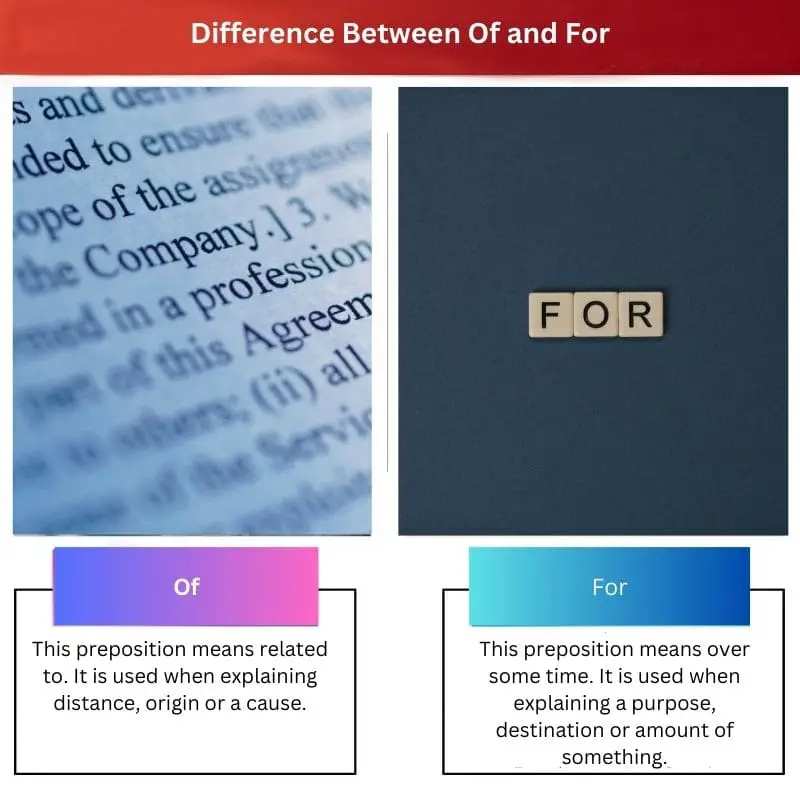Prepositions are important parts of the English language that tell one when and where a thing is about another. They introduce prepositional phrases.
Prepositions help in understanding the relationship between two things. They are short words. They help demonstrate a particular location, direction, position or time in English.
Examples of prepositions are at, in on, for etc.
Among the various prepositions, ‘of’ and ‘for’ are most commonly used. Both these prepositions are used to describe a relationship between two things in any sentence.
As commonly as they are used, these prepositions are also commonly misused in English sentences.
Key Takeaways
- “Of” is a preposition that indicates possession, origin, or relationship between entities.
- “For” is a preposition that shows purpose, duration, or the intended recipient of an action or item.
- Both “of” and “for” are prepositions used in English to express relationships between words, but they convey different types of connections and serve different grammatical functions.
Of vs For
Of is a preposition that is used to describe relation and ownership of something. It is used to explain relation of origin, distance, or cause. For is a preposition in English language that describes a period of time, and it is used to explain the amount, purpose, or destination.

Comparison Table
| Parameters of Comparison | Of | For |
|---|---|---|
| Meaning | This preposition means related to. It is used when explaining distance, origin or a cause. | This preposition means over some time. It is used when explaining a purpose, destination or amount of something. |
| Origin | The preposition ‘of’ is one of the oldest prepositions in the English language. | The preposition ‘for’ originated in the 900’s and came from the word before. |
| Other meaning | The other meanings of ‘of’ come from, separated from, belonging to, caused by and so on. | The other meanings of ‘for’ is instead of, in favour of, about, in place of and so on. |
| Used in | It is used in a very general sense. | It is used in a specific sense. |
What is ‘Of’?
The word ‘of’ is a very commonly used preposition in English. It is one of the oldest English prepositions.
There are several other meanings of the word of. These are- coming from, caused by, apart from, separated from and belonging to.
In short, of is a preposition of distance, cause, origin and direction. It is used to describe things in a broader sense.
Examples of how the word is used are, “Of all the people in the room, you are the most good-looking”, “Can you bring me a cup of coffee?” and “India is one of the most populated countries in the world.”.

What is ‘For’?
For is a commonly used preposition in the English language. It is used while speaking, reading and writing.
There are several other meanings of for too. These are- instead of, in favour of, with the purpose of, in place of and about.
In short, the word for is a preposition of distance, time and purpose. It is used when defining things in a specific sense.
Examples of how the word for can be used are, “You cannot take me for granted”, “I brought this dress for my friend.” and “Are you writing against it, or for it?’.

Main Differences Between Of and For
- The word Of is a preposition of distance, origin, direction and cause. On the other hand, the word For is a preposition of time, space and purpose.
- The word Of means related to, whereas the word For means over some time.





